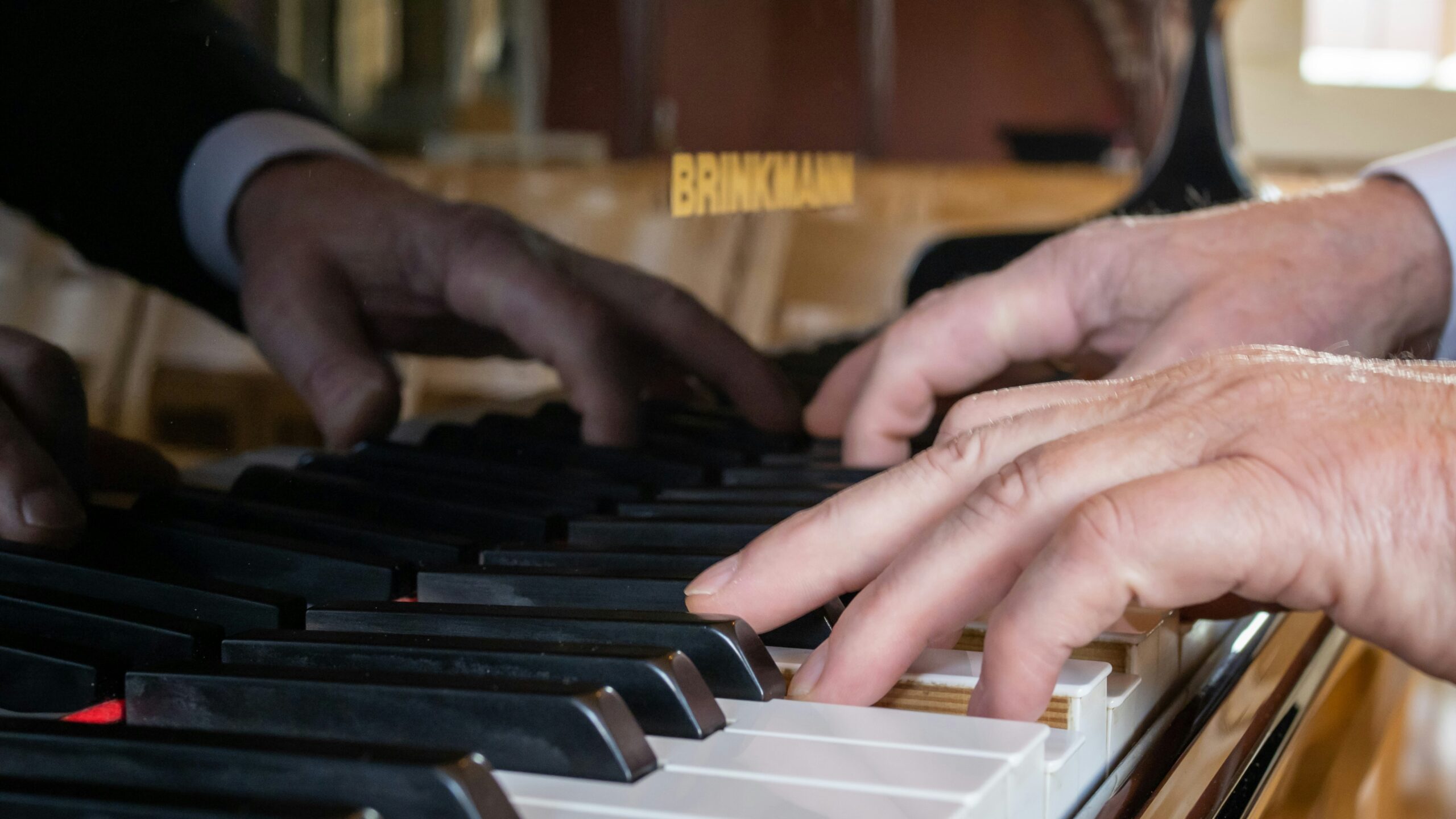
Breaking the Myth of the Lone Genius
Many of us picture music composition as a solitary act—a songwriter hunched over a piano or a producer locked away in a studio, wrestling with melodies until inspiration strikes. While that image carries some truth, it leaves out one of the most potent tools a composer can use: collaboration. Working with others can open up creative doors you never knew existed, bringing fresh ideas, new perspectives, and even breakthroughs when stuck.
When Fresh Ears Hear What You Miss
After hours of looping the same chord progression, it’s easy to lose perspective. That’s where another musician’s ear can be invaluable. A collaborator may notice a groove hiding in your bass line or suggest a harmony you hadn’t considered. These moments often feel small, but they can shift the entire direction of a piece. For example, many hit songs gain their magic from a subtle suggestion—a producer asking to slow a tempo, or a lyricist tweaking one line to carry more emotional weight.
Blending Different Skill Sets
Every musician brings unique strengths. Maybe you’re great with melodies but struggle with percussion. Or perhaps you can craft lush chord progressions, but lyrics leave you blank. Collaboration allows you to pair your strengths with someone else’s. Think of Elton John and Bernie Taupin—one wrote the music, the other the words. Together, they created timeless songs neither might have achieved alone. By leaning into what you do best and letting others fill the gaps, your compositions gain both depth and polish.
Pushing Past Creative Blocks
Creative ruts are part of the process, but collaboration can pull you out faster than going it alone. A co-writer might suggest an entirely different key, or a session player might bring in an instrument that sparks fresh inspiration. Sometimes just talking through your roadblocks with another person helps untangle them. In this way, collaboration doesn’t just add variety—it accelerates problem-solving.
Expanding Your Musical Vocabulary
Working with others exposes you to styles, genres, and techniques outside your comfort zone. Imagine a jazz pianist teaming up with a hip-hop producer: suddenly, swing rhythms and sampled beats collide to create something entirely new. Or picture a folk guitarist writing with an electronic musician, blending storytelling with atmospheric soundscapes. Even if you don’t adopt these new elements permanently, the exposure sharpens your skills and expands your creative vocabulary.
Building a Supportive Creative Circle
Beyond the music itself, collaboration builds community. Working with others fosters trust, respect, and a sense of accountability. You’re less likely to abandon a project when someone else is invested alongside you. Plus, sharing both successes and struggles makes the process more enjoyable. The best collaborations don’t just produce great songs—they produce lasting creative friendships.
From Studio to Stage: The Ripple Effect
Collaboration often continues beyond writing and recording. When musicians create together, they also perform together, tour together, and share audiences. A partnership can introduce your music to entirely new listeners who might never have discovered you otherwise. In today’s music industry, where visibility matters as much as creativity, this ripple effect can be as transformative as the composition process itself.
Making Collaboration Work for You
Of course, not every collaboration is easy. Creative differences, mismatched expectations, or clashing personalities can get in the way. The key is finding the right partners—people whose vision, work ethic, and communication style complement yours. Set clear goals, respect each other’s contributions, and keep the process playful rather than pressured. Whether you collaborate in person, over video calls, or through file-sharing platforms, approach it as a conversation, not a competition.
Final Note:
Music may begin as a personal expression, but it comes alive when shared. Collaboration transforms composition from a solitary act into a dialogue—a back-and-forth of ideas, sounds, and emotions. By opening yourself to others’ input, you invite surprise, growth, and possibilities that wouldn’t emerge on your own.